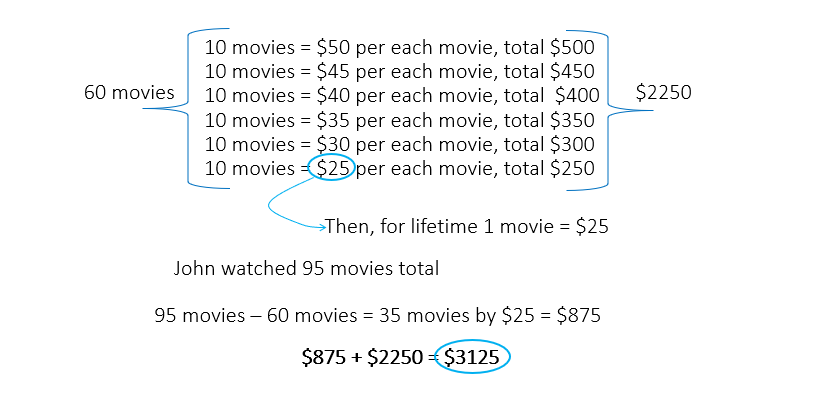Events & Promotions
|
|

GMAT Club Daily Prep
Thank you for using the timer - this advanced tool can estimate your performance and suggest more practice questions. We have subscribed you to Daily Prep Questions via email.
Customized
for You
Track
Your Progress
Practice
Pays
Not interested in getting valuable practice questions and articles delivered to your email? No problem, unsubscribe here.
- Nov 19
12:30 PM EST
-01:30 PM EST
Learn how Keshav, a Chartered Accountant, scored an impressive 705 on GMAT in just 30 days with GMATWhiz's expert guidance. In this video, he shares preparation tips and strategies that worked for him, including the mock, time management, and more - Nov 20
01:30 PM EST
-02:30 PM IST
Learn how Kamakshi achieved a GMAT 675 with an impressive 96th %ile in Data Insights. Discover the unique methods and exam strategies that helped her excel in DI along with other sections for a balanced and high score. - Nov 22
11:00 AM IST
-01:00 PM IST
Do RC/MSR passages scare you? e-GMAT is conducting a masterclass to help you learn – Learn effective reading strategies Tackle difficult RC & MSR with confidence Excel in timed test environment - Nov 23
11:00 AM IST
-01:00 PM IST
Attend this free GMAT Algebra Webinar and learn how to master the most challenging Inequalities and Absolute Value problems with ease. - Nov 24
07:00 PM PST
-08:00 PM PST
Full-length FE mock with insightful analytics, weakness diagnosis, and video explanations! - Nov 25
10:00 AM EST
-11:00 AM EST
Prefer video-based learning? The Target Test Prep OnDemand course is a one-of-a-kind video masterclass featuring 400 hours of lecture-style teaching by Scott Woodbury-Stewart, founder of Target Test Prep and one of the most accomplished GMAT instructors.
Kudos
Bookmarks
C
Be sure to select an answer first to save it in the Error Log before revealing the correct answer (OA)!
Difficulty:
 65%
(hard)
65%
(hard)
Question Stats:
66% (02:51) correct 34%
(03:20)
wrong
34%
(03:20)
wrong  based on 408
sessions
based on 408
sessions
History
Date
Time
Result
Not Attempted Yet
A movie theatre rewards its loyal customers by offering them discounts on the ticket price. For the first 10 movies that a person watches in the movie theatre, the ticket price is $50 per movie. For each subsequent set of 10 movies, the ticket price reduces by $5 per movie till the point where the ticket price equals $25 per movie. The person then gets a lifetime discount and can watch all subsequent movies at a ticket price of $25 per movie. If John watched 95 movies in this movie theatre last year, then the dollar amount that he paid for the tickets of the 95 movies is equivalent to which of the following?
A. \(200 × 10 + 35 ×25\)
B. \(60 × 25 + 45 × 35\)
C. \(225 × 10 + (30 + 5)(30 - 5)\)
D. \(225 × 10 + (40 + 5)(30 - 5)\)
E. \(225 × 10 + (40 + 5)(40 - 5)\)
A. \(200 × 10 + 35 ×25\)
B. \(60 × 25 + 45 × 35\)
C. \(225 × 10 + (30 + 5)(30 - 5)\)
D. \(225 × 10 + (40 + 5)(30 - 5)\)
E. \(225 × 10 + (40 + 5)(40 - 5)\)
|
Kudos
Bookmarks
A movie theatre rewards its loyal customers by offering them discounts on the ticket price. For the first 10 movies that a person watches in the movie theatre, the ticket price is $50 per movie. For each subsequent set of 10 movies, the ticket price reduces by $5 per movie till the point where the ticket price equals $25 per movie. The person then gets a lifetime discount and can watch all subsequent movies at a ticket price of $25 per movie. If John watched 95 movies in this movie theatre last year, then the dollar amount that he paid for the tickets of the 95 movies is equivalent to which of the following?
A. 200×10+35×25
B. 60×25+45×35
C. 225×10+(30+5)(30−5)
D. 225×10+(40+5)(30−5)
E. 225×10+(40+5)(40−5)
Given: A movie theatre rewards its loyal customers by offering them discounts on the ticket price. For the first 10 movies that a person watches in the movie theatre, the ticket price is $50 per movie. For each subsequent set of 10 movies, the ticket price reduces by $5 per movie till the point where the ticket price equals $25 per movie. The person then gets a lifetime discount and can watch all subsequent movies at a ticket price of $25 per movie. John watched 95 movies in this movie theatre last year.
Asked: The dollar amount that he paid for the tickets of the 95 movies is equivalent to which of the following?
For first 10 movies, ticket price is $50/movie => Total ticket price for 10 movies = $500
For next 10 movies, ticket price is $45/movie => Total ticket price for next 10 movies = $450
For next 10 movies, ticket price is $40/movie => Total ticket price for next 10 movies = $400
For next 10 movies, ticket price is $35/movie => Total ticket price for next 10 movies = $350
For next 10 movies, ticket price is $30/movie => Total ticket price for next 10 movies = $300
For next 10 movies, ticket price is $25/movie => Total ticket price for next 10 movies = $250
For all other movies, ticket price is $25/movie => Total ticket price for next x movies = $25x
He watched 95 = 10 + 10 + 10 + 10 + 10 + 10 + 35 movies
Total ticket price = $ ( 500+450+400+350+300+250+25*35)
= 50(5+6+7+8+9+10) + (30-5)*(30+5)
= 45*50 + (30-5)*(30+5)
= 225*10 + (30-5)*(30+5)
IMO C
A. 200×10+35×25
B. 60×25+45×35
C. 225×10+(30+5)(30−5)
D. 225×10+(40+5)(30−5)
E. 225×10+(40+5)(40−5)
Given: A movie theatre rewards its loyal customers by offering them discounts on the ticket price. For the first 10 movies that a person watches in the movie theatre, the ticket price is $50 per movie. For each subsequent set of 10 movies, the ticket price reduces by $5 per movie till the point where the ticket price equals $25 per movie. The person then gets a lifetime discount and can watch all subsequent movies at a ticket price of $25 per movie. John watched 95 movies in this movie theatre last year.
Asked: The dollar amount that he paid for the tickets of the 95 movies is equivalent to which of the following?
For first 10 movies, ticket price is $50/movie => Total ticket price for 10 movies = $500
For next 10 movies, ticket price is $45/movie => Total ticket price for next 10 movies = $450
For next 10 movies, ticket price is $40/movie => Total ticket price for next 10 movies = $400
For next 10 movies, ticket price is $35/movie => Total ticket price for next 10 movies = $350
For next 10 movies, ticket price is $30/movie => Total ticket price for next 10 movies = $300
For next 10 movies, ticket price is $25/movie => Total ticket price for next 10 movies = $250
For all other movies, ticket price is $25/movie => Total ticket price for next x movies = $25x
He watched 95 = 10 + 10 + 10 + 10 + 10 + 10 + 35 movies
Total ticket price = $ ( 500+450+400+350+300+250+25*35)
= 50(5+6+7+8+9+10) + (30-5)*(30+5)
= 45*50 + (30-5)*(30+5)
= 225*10 + (30-5)*(30+5)
IMO C
General Discussion
Kudos
Bookmarks
A movie theatre rewards its loyal customers by offering them discounts on the ticket price. For the first 10 movies that a person watches in the movie theatre, the ticket price is $50 per movie. For each subsequent set of 10 movies, the ticket price reduces by $5 per movie till the point where the ticket price equals $25 per movie. The person then gets a lifetime discount and can watch all subsequent movies at a ticket price of $25 per movie. If John watched 95 movies in this movie theatre last year, then the dollar amount that he paid for the tickets of the 95 movies is equivalent to which of the following?

movies.PNG [ 27.46 KiB | Viewed 5273 times ]
A. 200×10+35×25 = $2875
B. 60×25+45×35 = $3075
C. 225×10+(30+5)(30−5) = $3125
D. 225×10+(40+5)(30−5) = $3375
E. 225×10+(40+5)(40−5) = $3825
C is the answer.
Attachment:
movies.PNG [ 27.46 KiB | Viewed 5273 times ]
B. 60×25+45×35 = $3075
C. 225×10+(30+5)(30−5) = $3125
E. 225×10+(40+5)(40−5) = $3825
C is the answer.

















